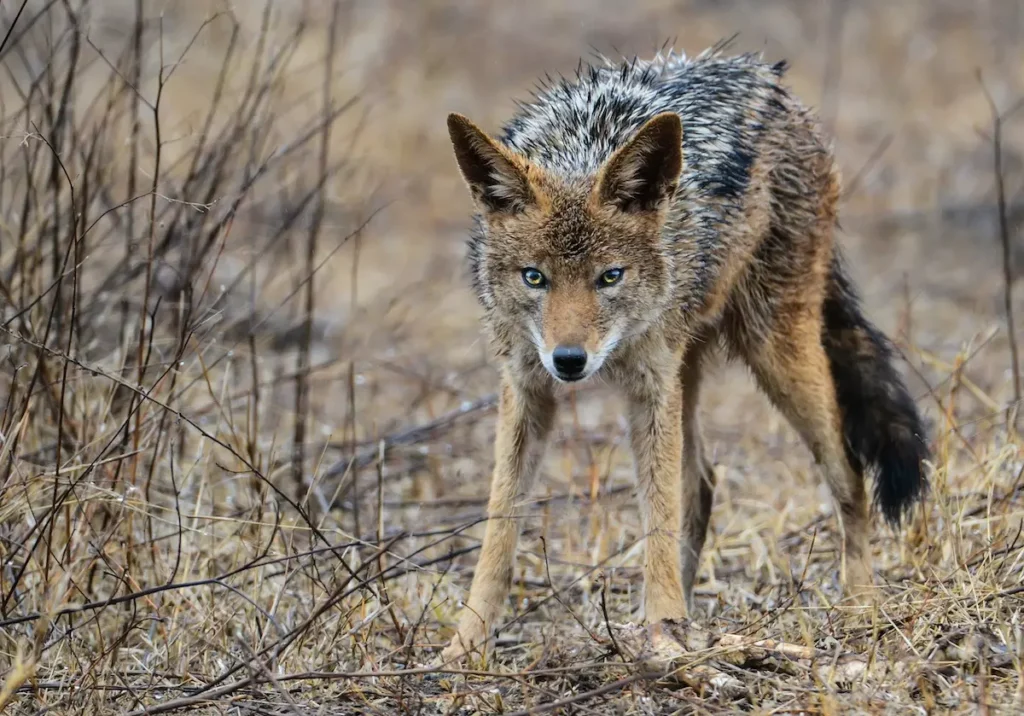When the clocked turned to 2019, only two states could claim a ban on the disgraceful practice of Wildlife Killing Contests (WKCs). California passed a Fish and Game Commission agency rule in 2014, and Vermont passed a law in 2018 forbidding them. But 2019 may be the year that the movement to end the practice nationwide revved up. New Mexico Governor Michelle Lujan Grisham has already signed a bill to ban coyote killing contests, and seven other states have taken up the matter, primarily through legislative action.
Legislative efforts in Nevada and Wisconsin haven’t progressed this session, but bills in Oregon, New York and New Jersey are alive and might get enacted. A related effort – a proposed bill in Montana to ban killing wildlife like wolves and coyotes by running them over with snowmobiles – stalled before it was even heard. (Yes, that’s really a thing, and it’s called ‘yote whacking’.)
With its libertarian bent, and its massive public lands, Arizona seemed at the start of 2019 to be a long shot to adopt a policy on the practice. The state, according to some accounts, staged killing contests 80 years ago, and today it is home to dedicated group of kill contest organizers and participants, who compete in more than 25 kill contests each year. They target bobcats, foxes, prairie dogs, mountain lions, badgers, coatimundi, rabbits, raccoons, and, most commonly, coyotes. Kill contest participants kill as many animals as they can during a specified time frame, then check in at the end of the contest with their piles of victims. They accrue points by killing the most, or the heaviest, or the smallest of the target animals, and walk away with cash, weapons, equipment, ribbons and belt buckles. What these animals have in common, generally, is that they are not consumed or used. It is mass killing as sport.
Arizona Game and Fish Department (AZGF), alert to the growing public outrage, is alone this year in proposing a rule to ban WKCs through the authority vested in the Arizona Fish and Game and Fish Commission. Commissioner Kurt Davis opened the commission meeting with a statement outlining why they recommend ending the practice. Their proposed rule is:
“ARTICLE 3. TAKING AND HANDLING OF WILDLIFE
R12-4-303. Unlawful Devices, Methods, and Ammunition:
- Participate in, organize, promote, or solicit participation in a contest where a participant uses or intends to use any device or implement to capture or kill predatory animals or fur-bearing animals as defined under A.R.S. § 17-101. For the purposes of this subsection, “contest” means a competition among participants where participants must register or record entry and pay a fee and prizes or cash are awarded to winning or successful participants.”
While Action favors the rule, it needs tightening so that contest organizers can’t simply re-structure the contests and skirt the intent of the commissioners. To wit, the weekend of April 12 and 13th, there was a wildlife killing contests held in Arizona that was “Free to Enter.” Contest organizers have also publicly discussed starting a charity, 501(c)(3) status, and simply accept donations instead of a fee, as a work-around.
Action agrees with Commissioner Davis when he says “[T]hese events serve no wildlife management objective” and “predator contests have never been contemplated as an appropriate management tool and they are certainly not congruent with the North American Model”. But the change in the law is not without its critics. “This is a conspiracy by the liberal left and creeping incrementalism by the antis,” wrote one killing contest organizer, “to stop all hunting and take away our guns”.
If Arizona passes this new rule, it will become the fourth state in the country to ban or restrict WKCs and it will help pave the way for other states to follow Arizona’s example. A recent study by Colorado State University and Ohio State University reveals that “Americans’ beliefs about wildlife management are changing”, noting a decline in hunting participation and less tolerance for certain forms of it. These findings are a reminder to state fish and wildlife agencies that they allow spectacles like WKCs at their peril, jeopardizing public trust in agencies that conduct more conventional hunting programs.
As more states outlaw killing animals for fun and prizes, we need Congress to step up and introduce federal legislation to ban WKCs on our federal lands (one third of the physical area of the United States). Our Forest Service and Bureau of Land Management lands should not be staging grounds for the mass slaughter of wildlife, with lead left behind to compound the damage to wildlife and increase the amount of killing.
Arizona Game and Fish is currently accepting public comment about the proposed rule, and it will vote on the rule on June 21st. They need to hear from you – the public – that you support this new rule, and urge them to not only adopt this rule, but to modify the language to make it even stronger. They need to know that you disagree with animals being killed for entertainment and prizes, that contests violate wildlife management principles and are contrary to responsible stewardship of wildlife as a public trust, and contests are out of step with how the public wants wildlife treated. In your own words, contact AZGF to submit your comment at rulemaking@azgfd.gov by May 12th.
Lain Kahlstrom is the director of state affairs at Animal Wellness Action.
